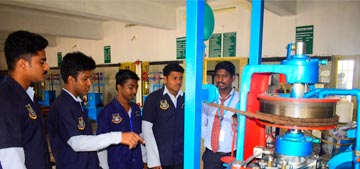Construction Materials Laboratory
Objectives
To facilitate the understanding of the behavior of construction materials.
Outcomes
The students will have the required knowledge in the area of testing of construction materials and components of construction elements experimentally.
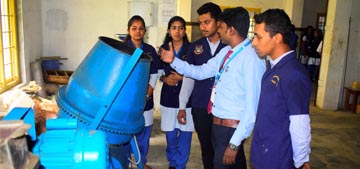
Strength of materials laboratory
Objectives
To expose the students to the testing of different materials under the action of various forces and determination of their characteristics experimentally
Outcomes
The students will have the required knowledge in the area of testing of materials and components of structural elements experimentally. Strength of Materials Laboratory: is well equipped with destructive testing machineries. This lab course is offered in the second year for the students from various departments in the school of Civil Engineering. Students will be able to understand the theoretical concepts of solid mechanics course and enable them to apply it practically in this laboratory.
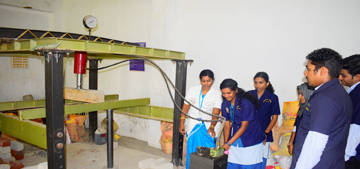
Surveying and Levelling Laboratory
Objectives
At the end of the course the student will possess knowledge about survey field techniques
Outcomes
On completion of the course, the student is expected to
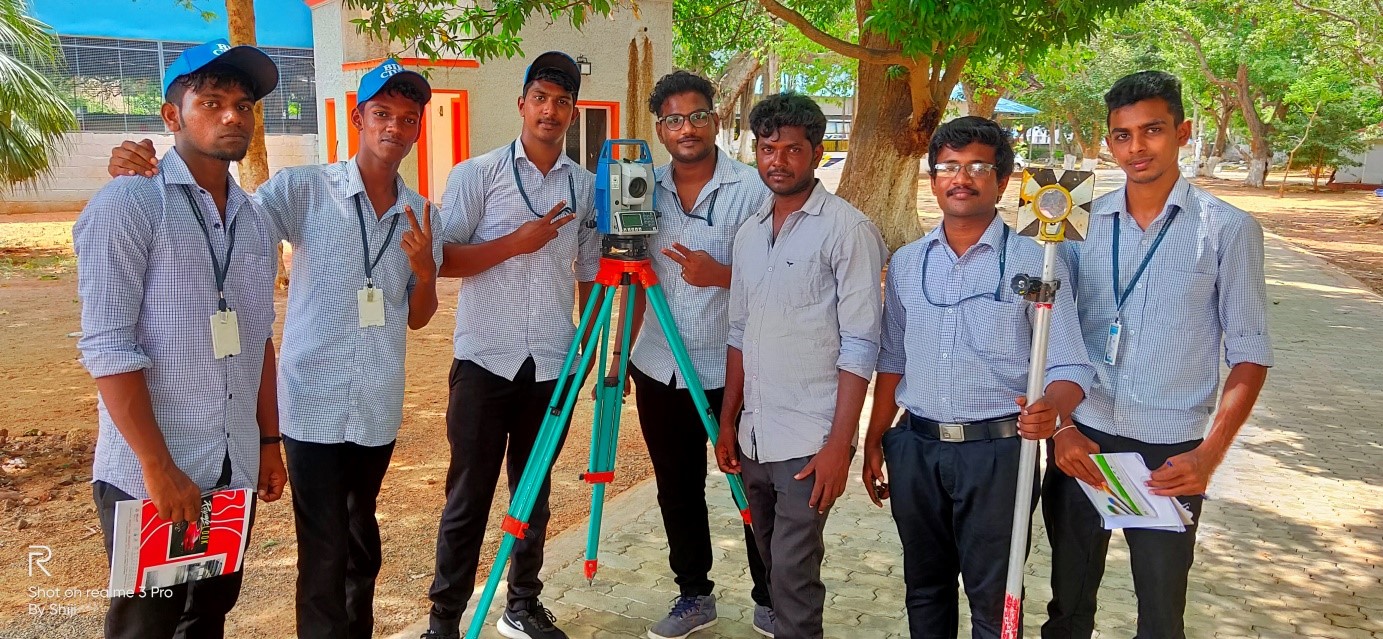
Soil Mechanics Laboratory
Objectives
To develop skills to test the soils for their index and engineering properties and to characterise the soil based on their properties.
Outcomes
Students are able to conduct tests to determine both the index and engineering properties of soils and to characterize the soil based on their properties This Laboratory is designed to obtain the basic knowledge about the soil under loading and unloading conditions occurred during the construction of structure at site. This laboratory helps the students to understand the basic and engineering properties of soils such as Specific gravity, Atterberg’s limit, Compaction, Consolidation, Permeability and Shear strength of soils.
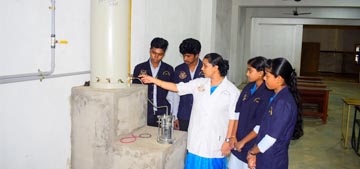
Highway Engineering Laboratory
Objectives
To learn the principles and procedures of testing of materials used in the construction of highways.
Outcomes
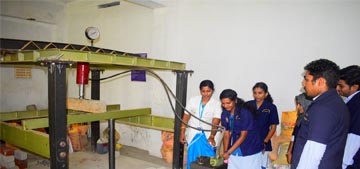
Computer Aided Drafting of Buildings Laboratory
Objectives
To introduce the students to draft the plan, elevation and sectional views of buildings in accordance with development and control rules satisfying orientation and functional requirements as per National Building Code.
Outcomes
The students will be able to draft the plan, elevation and sectional views of the buildings, industrial structures, and framed buildings using computer softwares. AutoCAD is a 2-D and 3-D computer-aided drafting software application used in architecture, construction, and manufacturing to assist in the preparation of blueprints and other engineering plans. Students can draw up plans for residential and commercial buildings and also draw up plans for use in the design and building of roadways, bridges, sewer systems, and other major projects.

Water and Waste Water Analysis Laboratory
Objectives
This subject includes the list of experiments to be conducted for characterization of water and municipal sewage. At the end of the course, the student is expected to be aware of the procedure for quantifying quality parameters for water and sewage.
Outcomes
On completion of the course, the student is expected to
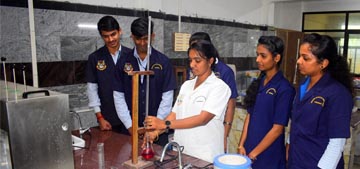
Fluid Mechanics & Hydraulic Machinery Laboratory
Objectives
Students should be able to verify the principles studied in theory by performing the experiments in lab.
Outcomes
It is an introductory course where flow behaviour, fluid forces and analysis tools are introduced. The goals of the experiments include demonstration of the continuity and energy equations. The lab experiments utilize U-tube manometer data acquisition where students will learn the working principle and laws guiding the fluid in the manometer. The other important part of the lab is learning about hydraulic machines where students will practically see the importance of hydraulic machinery. The lab runs closely with the lectures in such a way that experiments support the text covered in the class room. Facilities: Bernoulli’s experiment ,Impact of jet on vanes ,Flow through notch Venturimeter and orifice meter ,Pipe friction apparatus ,Reciprocating pump ,Francis turbine ,Kaplan turbine ,Centrifugal pump ,Hydraulic jump
